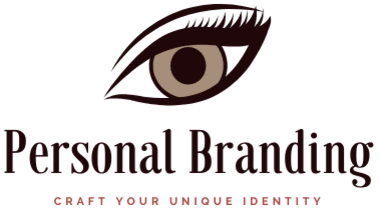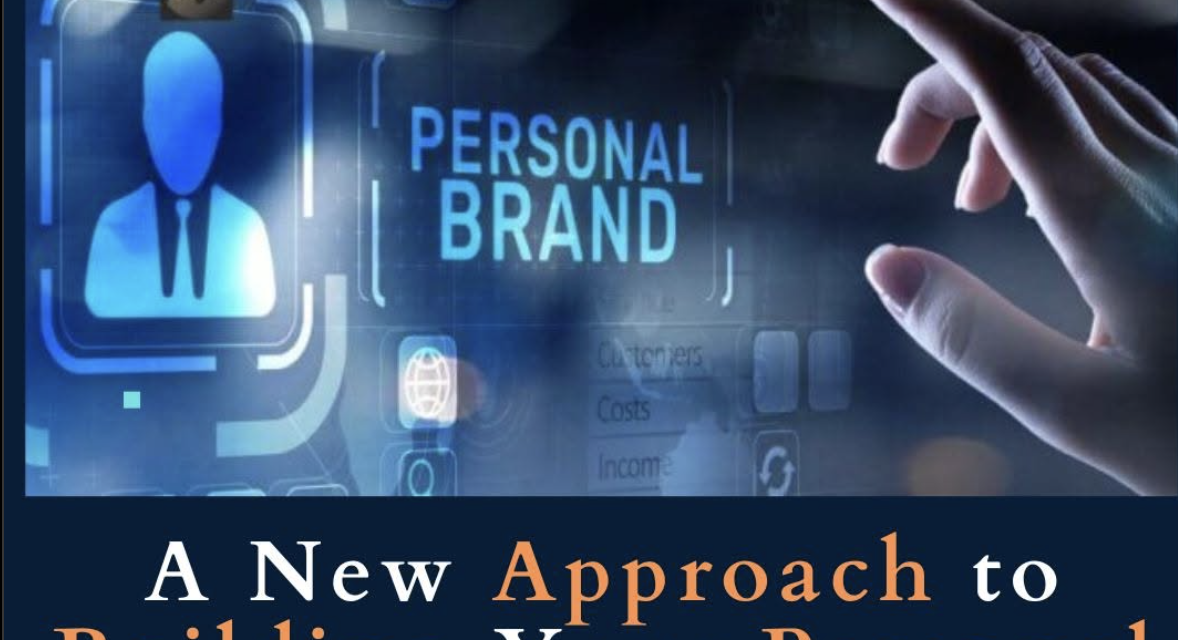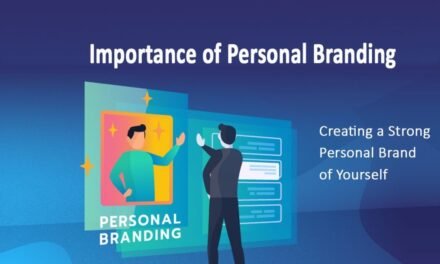A New Approach to Building Your Personal Brand
In an age where personal branding is more crucial than ever, the traditional approaches to curating your image and reputation are evolving. As industries become more interconnected and competitive, it’s essential to adopt a fresh, nuanced perspective when it comes to how we shape and present our personal brands.
The standard advice often centers around the idea of creating a consistent, polished image or narrative that tells a specific story about who you are and what you stand for. However, the modern landscape demands something more dynamic and authentic. A personal brand today should be adaptable, inclusive of diverse experiences, and responsive to feedback.
In this article, we explore a new approach to building your personal brand, one that encourages growth, authenticity, and flexibility.

1. Embrace the Evolution of Your Brand
The concept of a personal brand often implies a fixed narrative — a story you tell the world about yourself. Traditional personal branding suggests that consistency is key, and everything you do should be aligned with your defined message. This static approach, however, can stifle growth and limit your opportunities to explore new paths.
Instead, take a more fluid approach. Understand that your personal brand will evolve with you. As you gain new experiences, acquire skills, and shift your interests, let your brand reflect that evolution. Flexibility and adaptability are essential in a fast-changing world. Your brand should grow with you, not box you into a single persona.
This approach encourages you to embrace your multiple identities and interests. You don’t have to limit yourself to just one passion or area of expertise. Whether you are a tech enthusiast and a passionate writer, a developer and a musician, or a business leader and a volunteer, your brand can reflect these dimensions of your personality.
2. Focus on Authenticity Over Perfection
A common pitfall in personal branding is the pursuit of perfection. Many individuals feel the pressure to project an image of flawlessness, carefully curating their social media profiles, resumes, and public appearances to present an idealized version of themselves. While it’s important to put your best foot forward, striving for perfection can lead to inauthenticity and disconnection from your true self.
A more effective strategy is to prioritize authenticity. The key to building an impactful personal brand is to remain true to who you are. Share your successes, but also your failures, challenges, and the lessons you’ve learned. This transparency will make you more relatable and approachable, while also reinforcing trust with your audience.
Authenticity fosters deeper connections, which is especially important in today’s digital world, where people are increasingly drawn to genuine and human experiences. The more you can show the real you, the more likely your brand will resonate with others.
3. Align Your Brand with Purpose
A personal brand that is driven by a clear sense of purpose resonates more with audiences and clients. Purpose gives your actions meaning and context, and it helps guide your decisions, especially when facing challenges.
Before embarking on building your personal brand, ask yourself: What do I stand for? What values drive me? When your brand aligns with your deeper purpose, it naturally attracts people who share similar values, interests, and goals. This will not only help you build a loyal following but will also guide your decision-making in both personal and professional settings.
Additionally, a strong sense of purpose keeps you motivated and focused, making it easier to navigate through changes or setbacks. It helps to ensure that your brand remains meaningful, even as the landscape shifts.
4. Use Digital Platforms Strategically
In the modern world, digital platforms are powerful tools for building and amplifying your personal brand. But with so many platforms to choose from — LinkedIn, Twitter, Instagram, TikTok, and more — it’s essential to be strategic about how you use these platforms.
Each platform has its own culture, audience, and purpose. For example, LinkedIn is ideal for showcasing professional achievements, while Instagram and TikTok may be better suited for sharing more personal or creative content. You should adapt your content to each platform while maintaining a consistent core message.
Instead of trying to be everywhere, focus on the platforms where your target audience is most active. Prioritize quality over quantity when it comes to posting, and engage authentically with your followers. Respond to comments, start conversations, and share your thoughts in a meaningful way.
Remember that the digital world is evolving rapidly, so keep up with emerging platforms and tools. Stay curious and open to experimenting with new forms of content (e.g., short-form videos, podcasts, etc.) to stay relevant.
5. Build Relationships, Not Just a Following
Building a personal brand is not just about growing a large following. It’s about cultivating meaningful relationships with the people who engage with your brand. Relationships are the foundation of influence, and they can lead to more opportunities, collaborations, and long-term success.
Focus on building a community, not just an audience. Engage with your followers, interact with industry peers, and collaborate with others in your field. Offer value to your network by sharing insights, resources, and support. Being seen as someone who genuinely cares about others and adds value will set you apart from those who only focus on self-promotion.
Personal branding is not a one-way street. It involves active listening, collaboration, and a willingness to learn from others. By nurturing relationships, you’ll develop a brand that is grounded in real connections rather than superficial numbers.
6. Measure and Refine Your Brand Continuously
Just as your personal brand is ever-evolving, so too should your approach to measuring and refining it. Periodically assess how your brand is being perceived, both online and offline. Are you reaching the right audience? Is your message still relevant? Are there new trends or shifts in your field that you should be aware of?
Tools like social listening, surveys, and feedback from mentors or peers can provide valuable insights into how others perceive your brand. Use this feedback to adjust your approach and improve your strategies. Personal branding is not a one-time effort but a continuous process of refinement and growth.
Conclusion
In today’s world, building a personal brand is no longer about creating a static, polished image; it’s about being authentic, purposeful, and adaptable. By embracing evolution, prioritizing authenticity, aligning with your values, and strategically engaging with digital platforms, you can build a personal brand that resonates deeply with others.
Remember, your personal brand should reflect who you are, not who you think others want you to be. By being true to yourself and nurturing meaningful connections, you’ll stand out in a crowded world, ultimately creating a brand that is both impactful and enduring.



